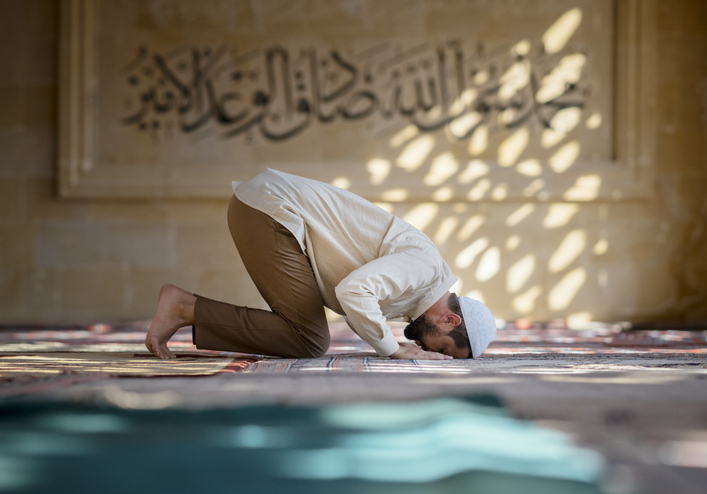2. Muslim Beliefs and Practices
Islam is a complete way of life that governs all aspects: moral, spiritual, physical, intellectual, social, economic and legal. The following descriptions are generally true throughout the Muslim world. Variations will occur in certain cultures or nations.
Cultural Beliefs and Practices
- Wearing the Hijab(head-covering) – Muslim women should dress modestly. Wearing the head covering (Hijab) is a mark of commitment to faith. In some countries, it is obligatory, but in others it is a personal choice.
- Family Life – The family is considered extremely important in Islam and includes the entire circle of familial relationships, including in-laws. Obligations to parents are strongly stressed. In many senses, marriage is considered the union of two families.
- Shaking Hands – Many Muslims do not shake hands with people of the opposite gender. When meeting a Muslim, wait to see if he or she offers his or her hand first; then follow accordingly.
- Honor / Shame – Muslim cultures, like most in Asia, are honor/shame oriented. One’s self-identity and respect is determined by an intricate network of socially acceptable behaviors and relationships.
- People Oriented vs. Time Oriented – Emphasis is placed on relationships and being with others and not on keeping to a strict time schedule for events or appointments.
- Ethnic Pride – Ethnic pride is a psychological factor that enables Islamic culture to remain generally unchanged. Most Muslims are proud of being followers of Islam. According to Islam, they are destined to dominate.
Religious Beliefs and Practices
- Faith Path – “Islam” means “Submission to God.” In general, Muslims believe or do what they have been told – not what they have discovered for themselves through study or questioning. Therefore, few read the Quran, and most are dependent on religious leaders to explain the Quran or Hadith.
- Prayer Customs – Muslims are required to pray five times a day. Men are encouraged to pray in the mosque though they may pray anywhere during the prescribed times. Memorized prayers are offered in Arabic.
- Cleanliness – Cleanliness (washing in a certain way) is a prerequisite to prayer. Muslims generally do not keep pets, including dogs, inside their homes, and they avoid contact with them.
- Dietary Restrictions – Pork products and alcoholic drink are haram (forbidden) in Islam. Muslims eat halal meat which is meat slaughtered in the Islamic way and blessed with the name of God.
- Ramadan and Celebrations – The month of Ramadan is set aside for fasting; during this month Muslims do not eat or drink between sunrise and sunset. The Quran declares that: “When Ramadan comes, the gates of Paradise are opened and the gates of Hell are closed, and the devils are put in chains.” Muslims believe that their good actions during this month bring a greater reward than at any other time of year.
- Eid-al-Fitr marks the end of Ramadan.
- Eid al-Adha (about 70 days after Eid-el-Fitr) is an occasion to commemorate
- Abraham’s obedience to Allah in offering his son Ishmael.
- Sin and Forgiveness – According to Islam, people sin but are not sinful by nature. Most “sin” is only considered a mistake that is due to forgetfulness or human weakness, and it can be forgiven by God through sincere repentance. There is no need for a Savior or substitute sacrifice. When we use the term “sin,” many Muslims may think only of major downfalls like murder or adultery. Thus, they will not agree with the biblical view that “all have sinned…”
- Judgment and Salvation – Islam teaches that on the Day of Judgment, every person will be accountable to God for his or her words and deeds. A practicing Muslim is always striving to be righteous while hoping and praying for God’s acceptance and grace. There is no assurance of salvation in Islam unless one is killed in a holy war (“jihad”).
